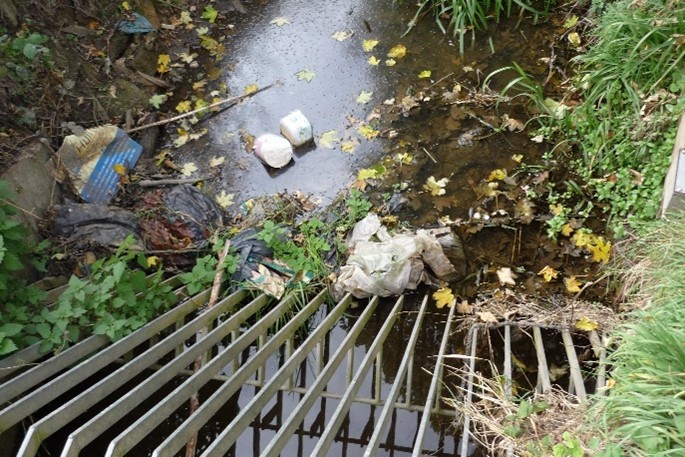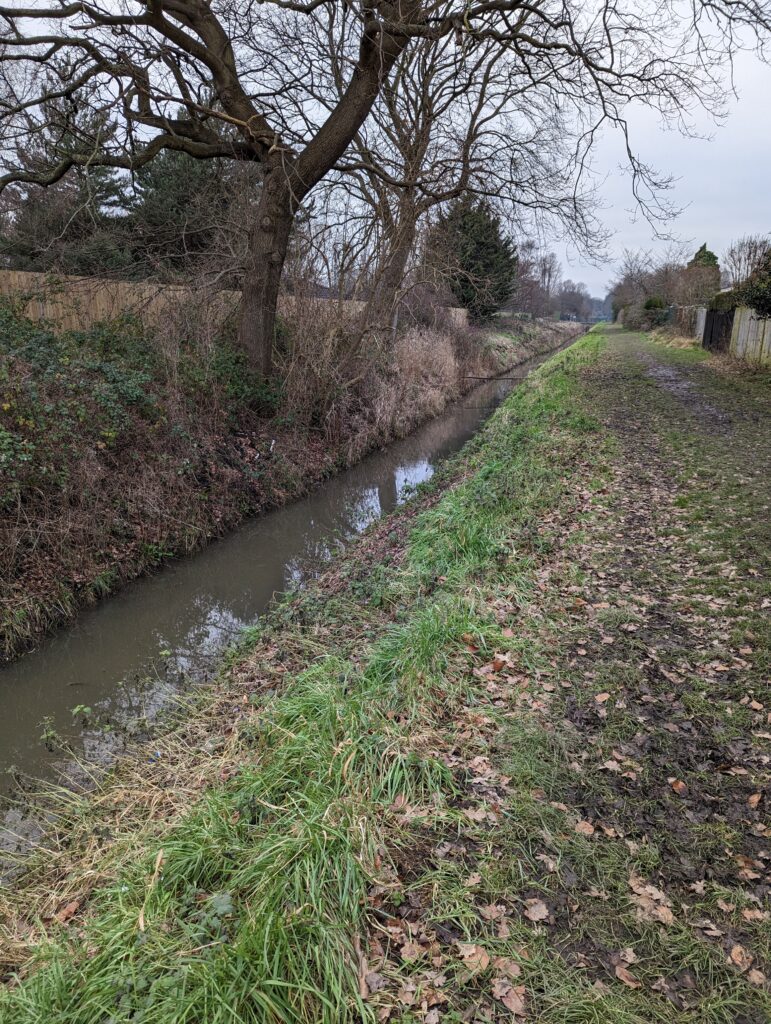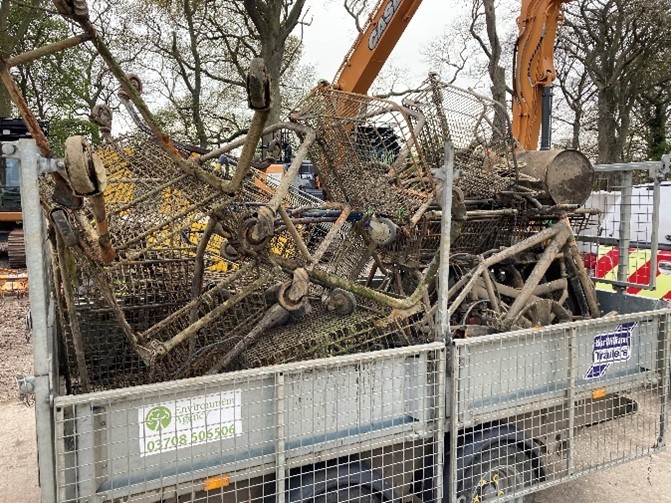Hull City Council is urging residents to ensure that they dispose of rubbish in the correct manner amid a flood risk after a shocking amount of litter was collected from Hull’s watercourses.
As part of Hull’s Dynamic Drains project with the Environment Agency, Yorkshire Wildlife Trust and Groundworks, more than 50 shopping trolleys and hundreds of bags of rubbish were collected during a community litter pick along Beverley and Barmston Drain.
A similar project at Holderness Drain has seen the council team up with the Environment Agency and Community Payback to clear the water using an excavator to remove over 3.28 tonnes of waste from the drain near to Portobello Street, improving the water for the local wildlife and residents.
More than £220m has been invested in flood infrastructure in Hull and the East Riding in recent years to manage the increasing flood risk.
The council is addressing the climate emergency by managing flood risk across the city using natural environment to store and move water to keep it out of peoples’ homes.
However, this is being compromised by fly-tipping, with rubbish blocking watercourses which increases flood risk across the city.
This also adds to the plastic pollution crisis since everything in Hull’s watercourses reaches the Humber Estuary and, eventually, the North Sea.
Substances such as paint and oil in groundwater make their way into the waterways, causing pollution and serious damage to ecology, as well as being an eyesore.

Rachel Glossop, the council’s flood risk manager, said: “The majority of people in Hull care for and look after their environment, but unfortunately there are a few who are spoiling the efforts of most to make our city a nice place to live and work.
“Littering and fly-tipping is lazy and can have severe consequences.
“Small rubbish, such as crisp packets, even if dropped on the floor, can blow into our watercourses, creating blockages and pollution.
“It’s not pleasant to see and isn’t good for the environment, also posing a risk to mammals, birds and aquatic wildlife.
“This affects everyone, not just those within the Dynamic Drains projects, so I urge people to ensure that they dispose of litter correctly.”
Hull’s Dynamic Drains is planned to roll out across some of the city’s other urban watercourses over the next three years, including Holderness Drain, Setting Dyke, Foredyke and Old Fleet Drain.
The Environment Agency’s Dan Jagucki said: “Hull’s Dynamic Drains has helped to clean up Beverley and Barmston Drain and the surrounding areas, created new green spaces for people to enjoy and encouraged people to connect with nature right in the centre of an urban environment.
“We’ve now moved onto Holderness Drain and this clean-up was the start of our project activities.”

Under section 33(1) Environmental Protection Act 1990 it makes it an offence for any person to deposit wastes, or knowingly cause or knowingly permit wastes to be deposited in or on any land unless an environmental permit authorising the deposit is in force and the deposit is in accordance with the licence.
The maximum penalty under this section is an unlimited fine, imprisonment, or both, whilst fixed penalties can also be applied.
The council urges residents to report any fly-tipping they come across or if they witness someone fly-tipping. This can be done by visiting Fly-tipping | Hull.
Further causes of fly-tipping are as a result of residents being tricked into paying what they believe are a large or bulky item removal business, only for those who collect the items to take the money and illegally dump the waste in the environment.
This can be combated by using services and schemes the council provides to dispose of waste.
This includes:
• For large items, residents can use the bulky household collection scheme. Households are eligible for one free collection per year of up to five items which can include cookers, dishwashers, fridges, mattresses, sofas etc.
• There are three household waste and recycling centres located across the city, open every day from 10am – 5pm, which residents can use free of charge. All are modern facilities, designed to maintain and improve recycling within the city.
• White electrical goods in working order can also be donated and/or collected free of charge to be sold at a discounted price in the Reuse Electrical Shop – a joint initiative with Dove House Hospice, ERYC, and FCC Environment – which aims to keep white goods in use for as long as possible.
For further information on services provided for residents to recycle and dispose of household waste, visit Bins and recycling – Hull. Alternatively, for more information on commercial waste and recycling collection, visit Commercial waste and recycling collection service | Hull.
For further information regarding disposal and recycling of household waste, email loveyourstreet@hullcc.gov.uk.
For more information about Community Payback, visit Community sentences: Community Payback – GOV.UK (www.gov.uk).
You can learn more the council’s flood alleviation schemes here and more about Hull’s Dynamic Drains project here.
